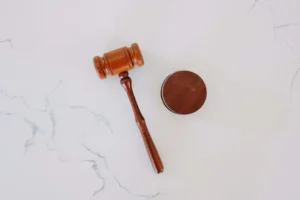Understand how the legislative process works in Brazil

Written by :
Heloisa Vasconcelos

Reviewed by :
Larissa Borges

For an idea to become law in Brazil, it needs to go through several stages, including votes in the Senate, the Chamber of Deputies and presidential sanction.
The time this process takes is specific to each case and also depends on political will and alliances.
Some more urgent projects can be processed quickly, but controversial topics, such as the regulation of sports betting , often encounter obstacles along the way.
The bills must pass through the Constitution, Justice and Citizenship Committee (CCJ) of both the Chamber and the Senate.
In addition to the CCJ, projects must be approved by at least one other committee, which varies according to the topic: Sports, Economic Affairs, Human Rights, and so on.
Bills are usually first passed through the Chamber of Deputies and then sent to the Senate, where they are reviewed. From there, they can be sanctioned by the President of the Republic and become law.
Legislative initiative
Lawyer and PhD candidate in constitutional law at the University of São Paulo (USP), Antonio Carlos Freitas, explains that the process for creating a law begins with the legislative initiative.
“There are bills that can only be proposed by the President of the Republic, others by the Supreme Court. But most bills can be proposed by senators and deputies,” he says.
He points out that it is also possible for committees within the Senate or the Chamber of Deputies to propose a bill. It is even possible for there to be popular initiative processes, but they are rarer due to the complex rules for submitting a bill.
He explains that the Chamber of Deputies is usually the first house in which bills are evaluated, except in cases where the idea was proposed by a senator.
![]()
“ The Chamber has a kind of primacy, it starts in the Chamber, the Senate reviews it, if something changes it goes back to the Chamber and then it goes to the president. ”
Antonio Carlos FreitasLawyer with a Master’s degree and PhD in Constitutional Law from the University of São Paulo (USP)
“The Chamber has a kind of primacy, it starts in the Chamber, the Senate reviews it, if something changes it goes back to the Chamber and then it goes to the president”, he summarizes.
If the proposal begins to be processed in the Senate because it was authored by a senator, the Chamber acts as a reviewing body and the process follows the same logic.
The house in which the process began has the power to approve or not the changes made by the reviewing house.
Thematic committees
Before deputies vote on the topic in the plenary, it must pass through the thematic committees.
UNDERSTAND : During committees, parliamentarians can also request public hearings to expand the discussion on the topic, which can delay the voting process.
It is in these spaces that parliamentarians discuss the viability of the project, propose amendments and make the main changes to the text.
Only after approval by all committees will the project be put to a vote in the plenary. And, if approved, it will be passed through the committees in the Senate again.
“It’s as if it were from scratch, it will go through the thematic committees, it has to go through the CCJ and the other committees. It has to go through the CCJ because it will review the constitutionality of the law,” says the lawyer.
This requirement, however, may have exceptions . In the case of Bill No. 3,626, which deals with the regulation of sports betting, it was only passed by the CCJ in the Chamber of Deputies due to the urgency regime requested by the President of the Republic.
According to Antonio Carlos, depending on the project, it may even have to pass through more than two committees in the legislative houses or even a committee may be created just to deal with this matter.
Provisional Measure
Another way for an idea to become law is through a provisional measure . Proposed by the executive branch, provisional measures already have the effect of law from the moment they are published.
An important difference between MPs and PLs, in addition to the effect of law, is the possibility that the provisional measure has of blocking the agenda.
“It forces the deputies to approve or not, it is a way of forcing a consensus or a rejection. The deadlock is in the plenary, the plenary cannot vote on anything else until the provisional measure is put forward”, explains the lawyer.
Normally, a joint committee of deputies and senators is created to evaluate the provisional measure. If it is not voted on within the established deadline, the provisional measure may expire : that is, lose its validity.
Speed in the process
It is difficult to define how long a bill or provisional measure can take to finally become a law – or if it will even reach that point.
Politicians opposed to the issue may use strategies to delay the vote. On the other hand, those who support the idea may request urgent deliberation.
According to Antonio Carlos, the College of Leaders, formed by the President of the Republic, the government leader, the minority leader and the leaders of each party, is responsible for determining the speed of the process of approving a law.
“The plenary is a theater. In practice, the college of leaders that will speed up or not and the possibility of approval for a bill,” he says.
And he reinforces: “Each procedure has its own way, it has the tone of the internal regulations for its needs”.
